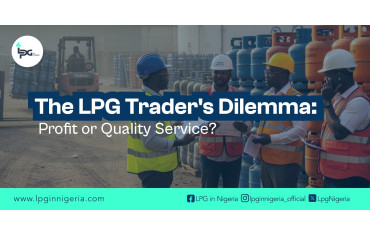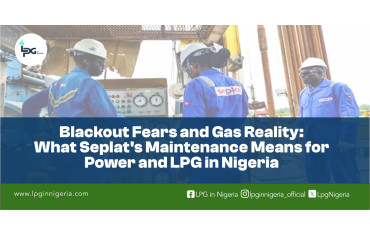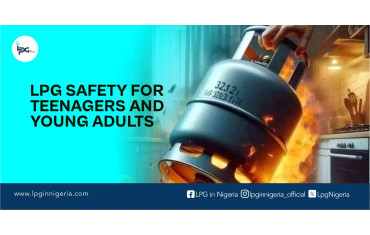- 5023
- 0
Sharing Ideas and Updates on LPG in Nigeria and related information to enable effective collaboration within the LPG Value Chain
LPG PLANT EXPLODES IN WARRI-SAPELE.

On February 20, 2023, at around 10.30 p.m., a gas explosion occurred near Warri-Delta State in Effurun/Sapele. The NELMIC LPG Plant, which is situated next to the Effurun Post Office and the Mega Redeemed Christian Church of God Parish, is the gas plant that is under question. LPG in Nigeria is still trying to determine what caused the explosion. Eyewitness accounts, however, describe a thundering sound preceding the fire and explosion that entirely destroyed the LPG plant. Before the arrival of fire department personnel, the fire spread to nearby residential structures and destroyed private properties, according to information from several of our social media followers. Several people are said to be dead, while the precise number of fatalities is yet unknown. Other people have also reportedly been injured, and the fire explosion has caused many people to flee their homes.
A gas explosion is an accident caused by the ignition of a mixture of air and flammable gas, usually as a result of a gas leak. The most common explosive gases in household accidents are those used for heating or cooking, such as natural gas, methane, propane, and butane. Many other gases, such as hydrogen, as well as evaporated (gaseous) gasoline or ethanol, play an important role in industrial explosions, which are common in Nigeria. Typically, a country's government will take drastic measures to prevent an industrial gas explosion. Is it usually error-free? - The answer is no, of course not.
Gas Explosion in Nigeria from 2006 till Date
i. Ilado, Lagos State: 150 deaths, several injured, water and environment pollution (May, 2006).
ii. Abule-Egba, Lagos: 500 deaths, several private properties destroyed as well as displacement of people (Dec. 2006).
iii. Ijedodo, Lagos: 1 death, damaged farmland and environmental pollution (Dec. 2006).
iv. Ododo, Ojo, Lagos: Undetermined death and environmental pollution (Dec. 2012).
v. Ijegun, Lagos: 100 deaths, environmental pollution (May 2008).
vi. Ijegun Isheri, Lagos: 2 deaths and 30 vehicles destroyed (July, 2019).
vii. Abule-Egba, Lagos: Properties destroyed (Dec. 2018).
viii. Abule-Egba, Lagos: Properties destroyed (Jan. 2020).
ix. Mushin, Lagos: 5 deaths and properties destroyed (Nov. 2021).
x. Agbor Gas Explosion: Properties destroyed (June, 2022).
xi. Effurun/Sapele, Delta State: Properties destroyed (Feb. 2023).
Of all these identified incidents, the Abule-Egba explosion of 2006 can be considered the most dangerous and fatal one of all with the explosion of yesterday coming in as a close second. Such explosions are referred to as “A BLEVE” explosion. A boiling liquid expanding vapour explosion is an explosion caused by the rupture of a vessel containing a pressurized liquid that has reached a temperature above its boiling point. This is because the boiling point of a liquid rises with pressure, the contents of the pressurized vessel can remain liquid as long as the vessel is intact. If the vessel’s or plant’s integrity is comprised, the loss of pressure and dropping boiling point can cause the liquid to rapidly convert to a gas and expand rapidly. If the gas is combustible, which is often the case, further damage can be caused by the ensuring fire.
The standard international pipeline operating procedures and gas plant practices is expected to include alarm management, Leak Detection Systems (LDS), and Supervisory Control & Data Acquisition, SCADA, which would help to detect leaks and vandalized pipelines but study indicate that Nigeria does not have such manpower. The Department of Petroleum Resources, NMDPRA, in the Federal Ministry of Petroleum exercises the statutory supervision and control of the oil and gas industry, including the pipeline sector with legislation and guidelines on the operation and maintenance of the pipeline. However, we cannot say categorically that safety measures are properly put in place with appropriate supervision for when these gas explosions occur in the country.
















0 Comment.